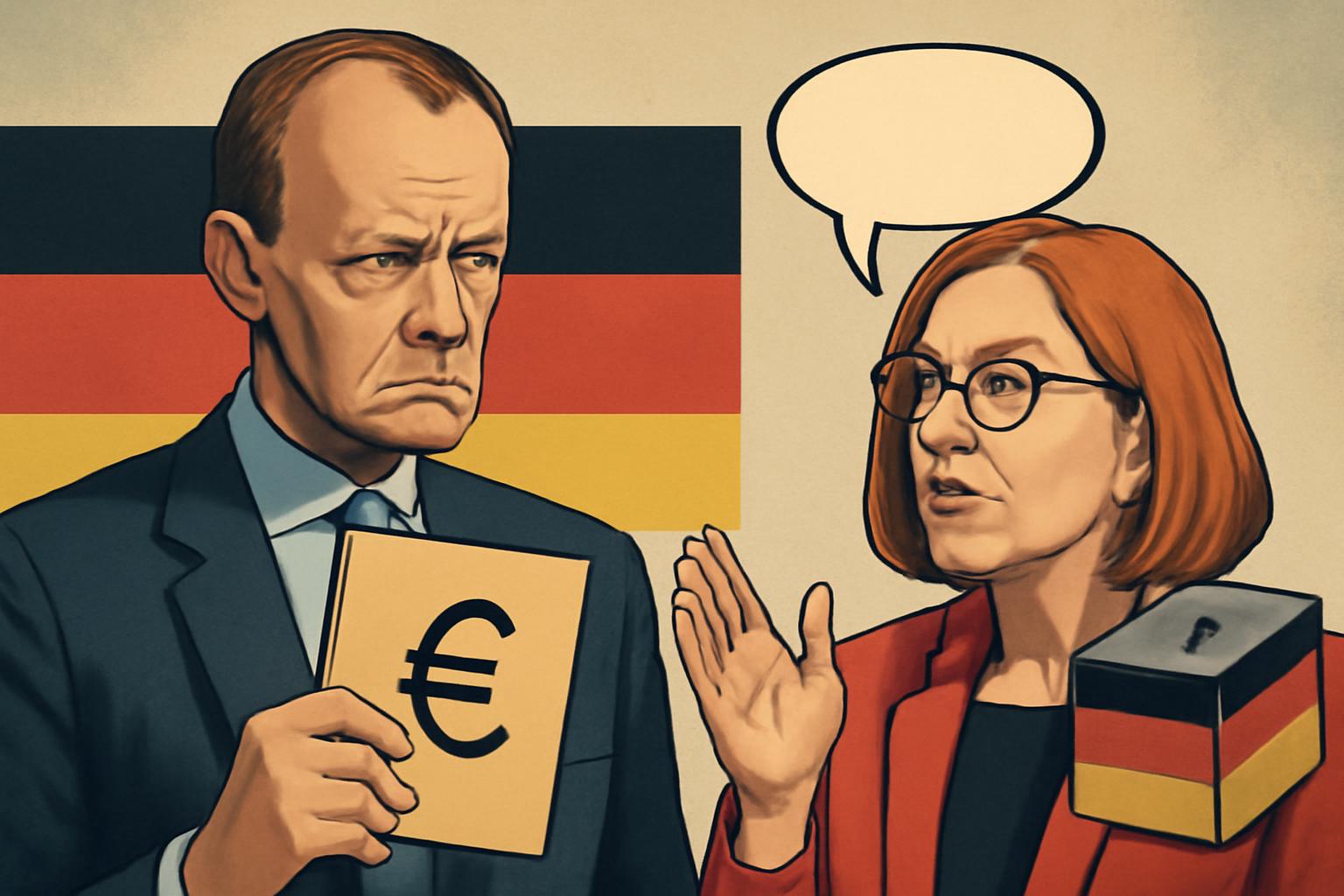A brisk critique of the current welfare debate has unfolded: the Chancellor pushes for roughly a ten percent cut in Bürgergeld, about €5 billion a year from the roughly €50 billion pool, arguing that savings are feasible and chiding Social Minister Bärbel Bas for her phrasing. Bas counters that Germany is wealthy enough not to gut social protection, insisting that growth will lift people into work and reminding everyone that the coalition agreed not to reduce benefits but to render the state faster and more capable; she concedes reform is possible but foregrounds growth and economic dynamism. The tension ripples through the party elite, with CSU leader Markus Söder demanding hard reforms and a sweeping overhaul that could see Bürgergeld replaced by a stricter form of basic security. Both Merz and Bas originate from North Rhine-Westphalia, and the upcoming local elections on 14 September are framed as a mood test for the coalition.
My dear contemporaries, how charmingly transparent this exercise in fiscal theatre is. Merz pretends to be the stern custodian of the national purse, nibbling away at €5 billion as if one could prune a rosebush and expect the garden to flourish. Five billion here, five billion there—what a noble sacrifice for the optics of restraint while the actual tasks of reform remain safely tucked behind polite chatter. Bas, with a smile as polished as her rhetoric, invokes the magic phrase “growth” as if wealth were a rain that falls on cue when politicians declaim about dynamism. She claims the coalition promised not to cut benefits, which is touchingly naïve in a world where promises are as durable as the paper they’re printed on; the real question is whether a faster, more capable state can emerge from a plan that looks suspiciously like bureaucratic theater dressed in modern armor. Söder’s hard-reform rhetoric promises a purging of the old order, perhaps even a replacement of Bürgergeld with something sterner—fine, so long as the reforms do not devolve into a mere tightening of the belt while the economy remains shackled by regulations and uncertainty. And NRW’s mood test, with its polite nods to growth and security, will reveal whether the electorate prefers stylish slogans or serious, measurable deliverables. If the voters applaud the pageantry, one fears the result will be a republic of slogans; if they demand substance, perhaps the coalition will earn a grudging respect—though I would not bet the family’s estate on it.
